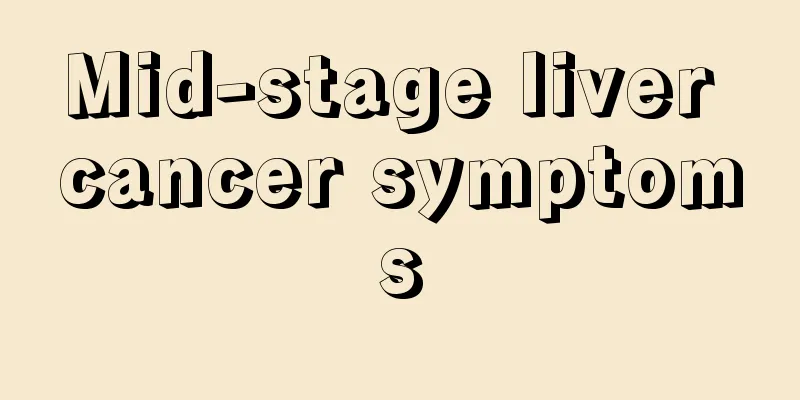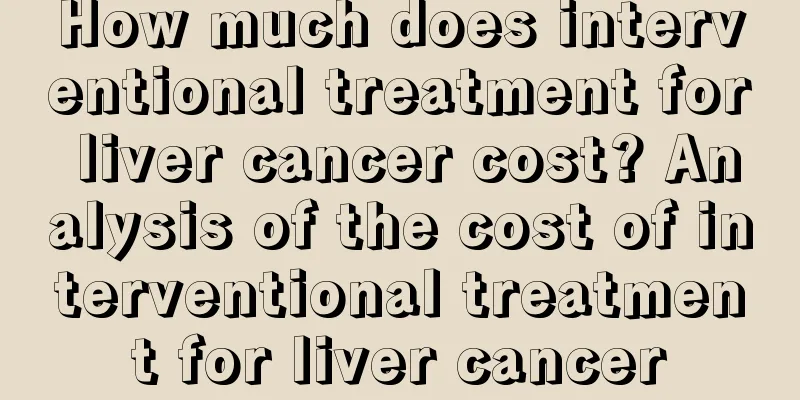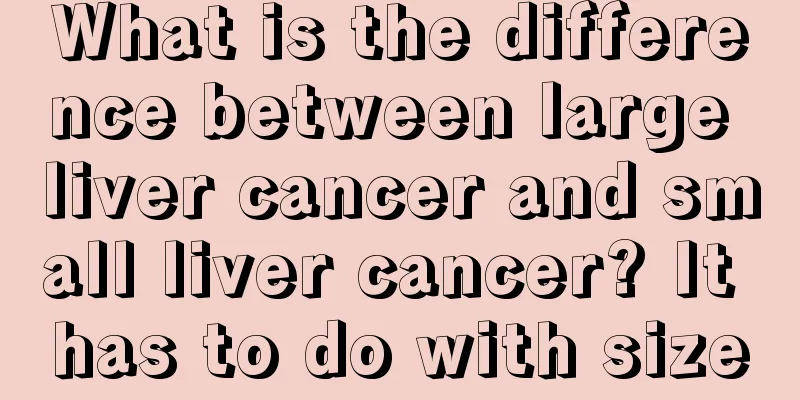How to treat acute hepatitis C? The best treatment for acute hepatitis C

|
Hepatitis is a very common liver disease, which can be divided into hepatitis A, hepatitis B, and hepatitis C. Hepatitis C is very harmful to our health. Acute hepatitis C must be treated promptly. Antiviral treatment can be used. Only timely treatment can prevent it from turning into chronic hepatitis C. (1) Acute hepatitis C The optimal treatment for acute HCV infection has not yet been determined, but treatment can be postponed until 8 to 12 weeks after the onset of acute hepatitis. If HCV-RNA is still detected to be positive, antiviral treatment should be started. Ordinary IFNα3-MU is injected intramuscularly or subcutaneously once every other day for 24 weeks. For the treatment of hepatitis C, ribavirin 800-1000 mg/d should be taken at the same time. (2) Chronic hepatitis C ① Patients with persistent or repeated elevation of ALT or AST, or obvious inflammatory necrosis (G≥2) or moderate or above fibrosis (S≥2) in liver histology are prone to progression to cirrhosis and should be given active treatment. ② Most patients with persistently normal ALT have mild liver disease, and the decision on whether to receive treatment should be based on the pathological results of liver biopsy. For those with obvious fibrosis (S2, S3), antiviral treatment should be given regardless of the degree of inflammatory necrosis; for those with mild inflammatory necrosis and no obvious fibrosis (S0, S1), no treatment is required for the time being, but liver function should be tested every 3 to 6 months. ③ALT level is not an important indicator for predicting patients' response to IFNα. For hepatitis C patients with normal or slightly elevated ALT, treatment can be provided as long as the HCV-RNA is positive. QQ screenshot 20160627152526.png (3) Hepatitis C cirrhosis ① For patients with compensated cirrhosis (Child-Pugh A grade), although the tolerance and effect of hepatitis C treatment are reduced, in order to stabilize the condition and delay or prevent the occurrence of complications such as liver failure and HCC, it is recommended to give antiviral treatment under close observation. ② Patients with decompensated cirrhosis often find it difficult to tolerate the adverse reactions of IFNα treatment, and those who are able should undergo liver transplantation. (4) Recurrence of hepatitis C after liver transplantation The recurrence rate of HCV infection is high in patients with HCV-related cirrhosis or HCC after liver transplantation. IFNα treatment has a certain effect on such patients, but it may promote rejection of the transplanted liver. Antiviral treatment can be carried out under the guidance of an experienced specialist and under close observation. |
<<: What are the signs that depression is getting better? Do you know all of these?
>>: What should we do if teenagers have low immunity?
Recommend
How to apply nail glue
Nail glue is a commonly used glue in the manicure...
Can a person with small cell lung cancer live for 10 years?
Small cell lung cancer is the most malignant and ...
How to make fried zucchini?
Zucchini is very common in our daily life. It con...
How to use a suction machine?
There are many types of suction pumps, including ...
Is it okay to do maintenance exercises after rectal cancer surgery?
The most direct way to treat rectal cancer is to ...
There were signs of cancer 2 years ago
Rapid weight loss, anorexia, recurrent diarrhea a...
Thyroid tumor grading
If there is a cyst problem in the thyroid gland, ...
What should I do if my teeth become calcified and white?
Generally speaking, white teeth are not calcifica...
What is the best way to wash your face every day
Washing face is something everyone does every day...
What are the symptoms of prenatal anxiety?
People say that most pregnant women have bad temp...
What can you eat after breast cancer surgery? You can eat more of these 7 types of food after breast cancer surgery
Breast cancer is a common breast disease. There a...
How to remove oil stains from clothes
How to remove oil stains from clothes? We often g...
Can brain cancer be detected through blood tests
Can brain cancer be detected through blood tests?...
Which hospital is good for treating skin cancer
Nowadays, the concept of beauty that white is bea...
What to do if you get a bump on your head
The human head can be injured if one is not caref...









